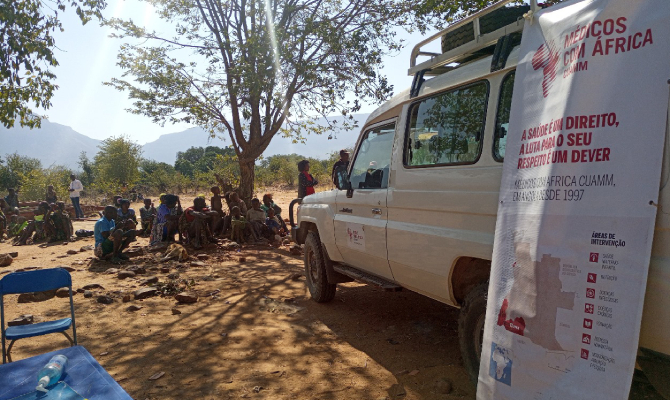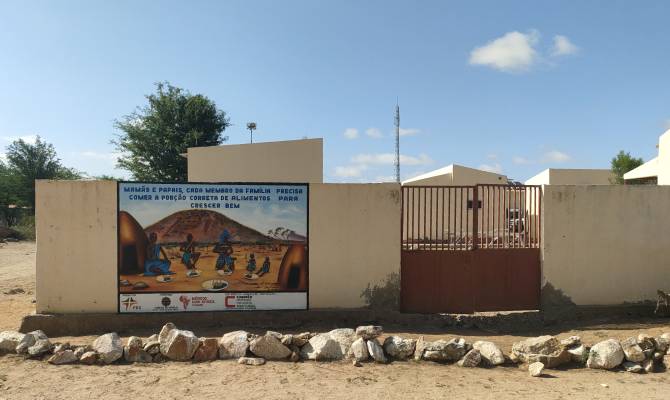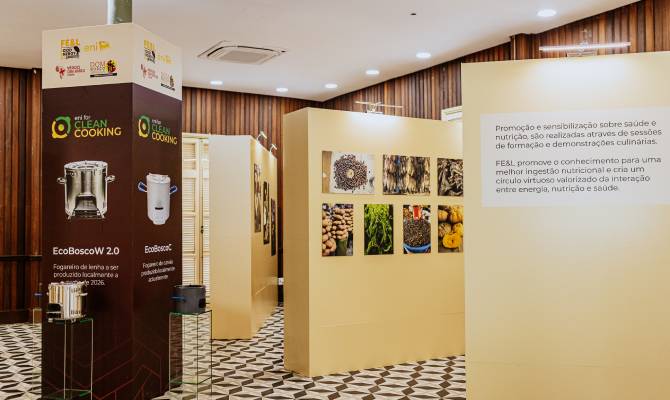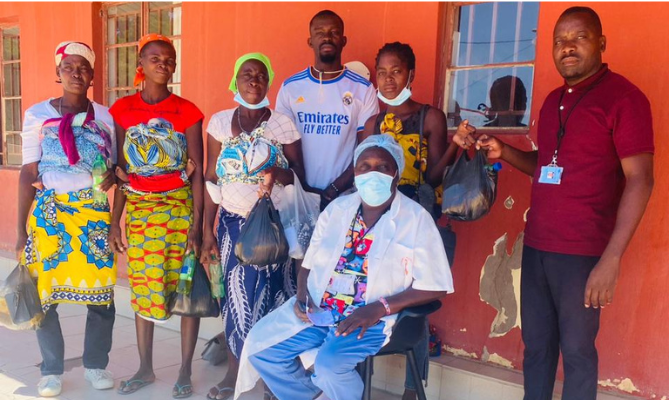«We only get water few months throughout the year, the land is too arid to cultivate. It’s tough, but we stay here. Even though the health facility is small, when the mobile clinics arrive we can check the health status of our children and have them vaccinated» says Antônia Paula, a mother of seven, who we met in the tiny community of Kwuiti Kwuiti, in the heart of Namibe province.
According to the latest data released by Fews Net – the Famine Early Warning Systems Network, the situation is worrying. Angola is experiencing phase 3 of the IPC Acute Food Insecurity classification, the tool for accurately assessing the severity of food insecurity and acute malnutrition. Calculated according to precise standards recognized at international level, phase 3 is assessed when households either have food consumption gaps that are reflected by high or above-usual acute malnutrition; or are marginally able to meet minimum food needs but only by depleting essential livelihood assets or through crisis-coping strategies.
Having to put something on the plate every day is difficult for Antônia, as it is for many other families in this area who depend either on livestock or the little that the land, which is dry for most of the year, has to offer.

Located in southern Angola, the province of Namibe is among the hardest hit by the drought that has crippled the country. Six rainy seasons with below-average precipitation have compromised the crops, which are now insufficient, and have threatened the livelihood and survival opportunities of those who rely on the land to survive. The people most affected are mainly men and women from the Mumuila ethnic group but the drought also threatens the Mucubal, a nomadic cattle-herders with a pastoralist way of life.
«The communities of Namibe are fragile ecological niches, increasingly at risk of and exposed to the impact of the multiple threats expressed by the One Health concept. To respond effectively, we must recognize the interdependence between ecological crisis and health, therefore adopt a strategic and interdisciplinary approach – said Edoardo Occa, CUAMM anthropologist and community health expert who added: the outreach strategy, adopted by deploying mobile clinics becomes essential in this context where it is only by adapting the health system’s needs to those of the communities that can we increase access to services».
Since May 2023, eight CUAM mobile clinics have been moving each month in the area, reaching nine communities located between the municipalities of Virei and Caindi. Nutritional screenings, prenatal visits, awareness sessions, and nutritional education are the main activities offered by the team.
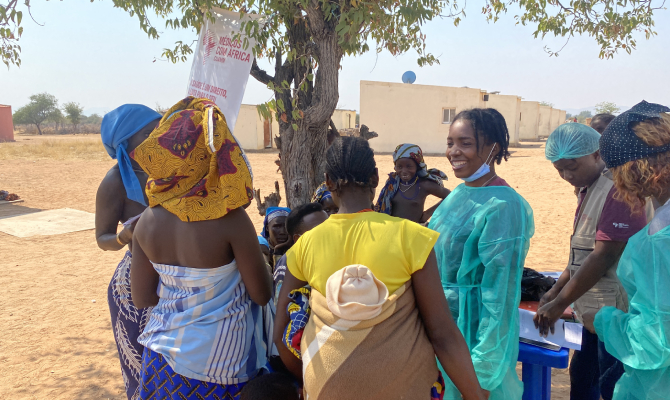
«We work to support populations who, due to environmental conditions, are always on the move, says Rossella Corrà, CUAMM project manager. The biggest challenge is to ensure follow-up, both in prenatal visits and in the treatment of malnutrition».
Using the ficha de transferência – a health record, the teams can monitor malnutrition cases detected in the field and ensure adherence to the therapeutic program even for patients on the move. However, food insecurity is not the only challenge to address. In these areas, where health services are either insufficient or entirely absent, ensuring maternal health can be a struggle. The general hospital where people refer to, located in Virei, is in fact one and a half hours by car from the nearest community of Kwuiti Kwuiti and about three hours from the most isolated Tchacuto, in the municipality of Caindi. It is only in that facility that women can have access to assisted birth yet, they rarely walk this distance.
«During prenatal visits, we always recommend to the women to move closer to the hospital as their due date approaches, but they barely do that. Compunding the challenge of the distance to be walked, is the widespread belief that they don’t need an assisted birth. We try our best to make them understand that giving birth with the support of health professionals is important to respond promptly to possible complications» explains Gelssica Chimanda, CUAMM nurse.
Since May 2023, 77 awareness and nutritional education sessions have been carried out by the mobile clinics, reaching a total number of 4,604 people; 383 prenatal visits have been conducted in the nine communities as part of the KUPE project – Kilonguela pala ekongoko, meaning “educate for health” in the Kuvale language. The intervention, supported by the Instituto Camões, is carried out in collaboration with the Portuguese NGO Fec.

